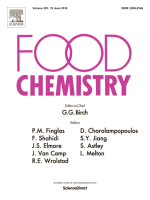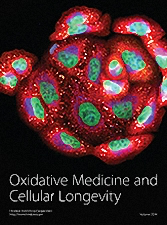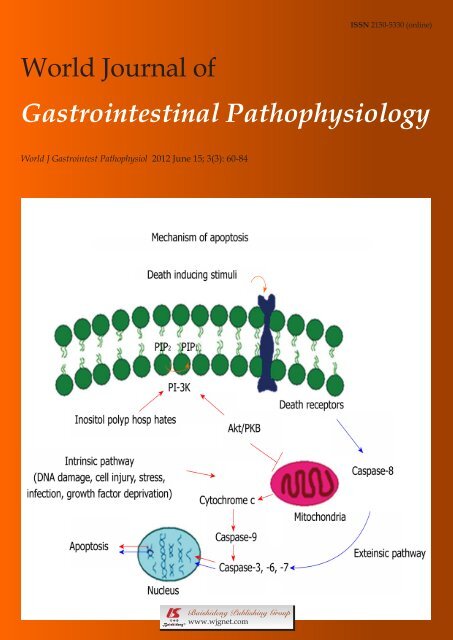Beer
How to submit an article:
- Registered users can submit any published journal article that has a unique DOI (Digital Object Identifier) name or link to Research Hub.
- For example, you can paste the full DOI link:
https://doi.org/10.1109/5.771073or just the DOI name:10.1109/5.771073into the field above and click submit. - The person who is first to submit a valid article to Research Hub will forever be credited for it, and every article submission earns you +6 Research Points.
Published research studies are articles that present the findings of original research that has undergone a peer-review process and has been made publicly available in scholarly journals, books or other media.

Physiological Mechanisms by Which the Functional Ingredients in Beer Impact Human Health
2024 Jun 29 Molecules Zeng Y, Ahmed HGMD, Li X, Yang L, Pu X, Yang X, et al.
BeerThis article was submitted by Jinnan C. and is awaiting moderation..
Beer, specifically low-purine and high-active ingredient beer such as ginger, ginseng, and coix-lily, possess functional ingredients contributing to controlling chronic human diseases.

Humulus lupulus L. a potential precursor to human health: High hops craft beer
2023 Mar Food Chemistry González-Salitre L, Guillermo González-Olivares L, Antobelli Basilio-Cortes U
Hops BeerThis article was submitted by Jinnan C. and is awaiting moderation..

Effect of moderate beer consumption (with and without ethanol) on osteoporosis in early postmenopausal women: Results of a pilot parallel clinical trial
2022 Nov 15 Frontiers in Nutrition Trius-Soler M, Tresserra-Rimbau A, Moreno JJ, Peris P, Estruch R, Lamuela-Raventós RM
Osteoporosis BeerThis article was submitted by Jinnan C. and is awaiting moderation..
Moderate beer intake does not show a protective effect against bone loss in early post-menopausal women.

The melatonin contained in beer can provide health benefits, due to its antioxidant, anti‐inflammatory and immunomodulatory properties
2022 Sep 15 Journal of the Science of Food and Agriculture Maldonado MD, Romero‐Aibar J, Calvo JR
Melatonin BeerThis article was submitted by Jinnan C. and is awaiting moderation..
Moderate consumption of beer, due to its melatonin content, can beneficially contribute to healthy diets and improve quality of life in certain physiological conditions.

Systemically Achievable Doses of Beer Flavonoids Induce Estrogenicity in Human Endometrial Cells and Cause Synergistic Effects With Selected Pesticides
2021 Jun 07 Frontiers in Nutrition Aichinger G, Bliem G, Marko D
Oestrogen Flavonoids BeerThis article was submitted by Jinnan C. and is awaiting moderation..
The combinations of hop-derived polyphenols found in beer can collaboratively enhance estrogenic effects, especially when mixed with certain estrogenic pesticides.
Research insights are moderated by the Research Hub team and offer an at-a-glance overview of interesting research findings.

2024 Molecules
Beer, specifically low-purine and high-active ingredient beer such as ginger, ginseng, and coix-lily, possess functional ingredients contributing to controlling chronic human diseases.
Physiological Mechanisms by Which the Functional Ingredients in Beer Impact Human Health
Zeng Y, Ahmed HGMD, Li X, Yang L, Pu X, Yang X, et al.

2022 Frontiers in Nutrition
Moderate beer intake does not show a protective effect against bone loss in early post-menopausal women.
Osteoporosis
Effect of moderate beer consumption (with and without ethanol) on osteoporosis in early postmenopausal women: Results of a pilot parallel clinical trial
Trius-Soler M, Tresserra-Rimbau A, Moreno JJ, Peris P, Estruch R, Lamuela-Raventós RM

2022 Journal of the Science of Food and Agriculture
Moderate consumption of beer, due to its melatonin content, can beneficially contribute to healthy diets and improve quality of life in certain physiological conditions.
Melatonin
The melatonin contained in beer can provide health benefits, due to its antioxidant, anti‐inflammatory and immunomodulatory properties
Maldonado MD, Romero‐Aibar J, Calvo JR

2021 Nutrients
Moderate daily consumption of beer, both with and without alcohol, can significantly alleviate menopause-related symptoms and improve cardiovascular health in postmenopausal women.
Cardiovascular Disease Menopause
Moderate Consumption of Beer (with and without Ethanol) and Menopausal Symptoms: Results from a Parallel Clinical Trial in Postmenopausal Women
Trius-Soler M, Marhuenda-Muñoz M, Laveriano-Santos EP, Martínez-Huélamo M, Sasot G, Storniolo CE, et al.

2021 Frontiers in Nutrition
The combinations of hop-derived polyphenols found in beer can collaboratively enhance estrogenic effects, especially when mixed with certain estrogenic pesticides.
Flavonoids Oestrogen
Systemically Achievable Doses of Beer Flavonoids Induce Estrogenicity in Human Endometrial Cells and Cause Synergistic Effects With Selected Pesticides
Aichinger G, Bliem G, Marko D
Review Articles
Review articles summarise and critically evaluate the current state of research on a specific topic or field by synthesising multiple primary research studies.
Clinical Trials
Clinical trials are research studies that involve people and are conducted to evaluate the safety and efficacy of new treatments or interventions, such as drugs, medical devices, or behavioural therapies.
Study Protocols
Published study protocols are detailed plans that outline the objectives, methodology, statistical analyses, and organisation of a research study that have been made publicly available for others to review and use as a reference.
Presentation Slides

Beer, specifically low-purine and high-active ingredient beer such as ginger, ginseng, and coix-lily, possess functional ingredients contributing to controlling chronic human diseases.
Zeng Y, Ahmed HGMD, Li X, Yang L, Pu X, Yang X, Yang T, Yang J

Moderate beer intake does not show a protective effect against bone loss in early post-menopausal women.
Trius-Soler M, Tresserra-Rimbau A, Moreno JJ, Peris P, Estruch R, Lamuela-Raventós RM

Moderate consumption of beer, due to its melatonin content, can beneficially contribute to healthy diets and improve quality of life in certain physiological conditions.
Maldonado MD, Romero‐Aibar J, Calvo JR

Moderate daily consumption of beer, both with and without alcohol, can significantly alleviate menopause-related symptoms and improve cardiovascular health in postmenopausal women.
Trius-Soler M, Marhuenda-Muñoz M, Laveriano-Santos EP, Martínez-Huélamo M, Sasot G, Storniolo CE, Estruch R, Lamuela-Raventós RM, Tresserra-Rimbau A

The combinations of hop-derived polyphenols found in beer can collaboratively enhance estrogenic effects, especially when mixed with certain estrogenic pesticides.
Aichinger G, Bliem G, Marko D

Review Article
Moderate beer consumption could potentially alleviate menopausal symptoms by influencing the internal estrogen receptors through the phenolic compounds present in beer.
Sandoval-Ramírez BA, Lamuela-Raventós RM, Estruch R, Sasot G, Doménech M, Tresserra-Rimbau A

Clinical Study
Hydrogen carbonate-rich mineral water significantly reduces heartburn frequency and severity, improving quality of life with excellent tolerability.
Beer AM
Executive Summary
Write an executive summary in the form of a blog article on the topic of "Research into Chinese medicine treatment for Beer" summarising the research below and using language that can be easily understood by patients and avoiding medical jargon using a professional and caring tone of voice.
Write an executive summary in the form of a blog article on the topic of "Researched Chinese medicine treatments for Beer" summarising the research below in an objective and easy to understand way, and using language that can be easily understood by patients. Group the article into Chinese medicine treatments first, followed by nutrition and other treatments. Avoid using medical jargon and use a professional and caring tone of voice.
Write me a concise but easy to understand executive summary on the topic of "Chinese medicine treatments for Beer" based on the following research that I will give you. Your summary should be 2 paragraphs long in Australian English spelling and include references to the studies.
A published in 2024 in the journal Molecules found that Beer, specifically low-purine and high-active ingredient beer such as ginger, ginseng, and coix-lily, possess functional ingredients contributing to controlling chronic human diseases. The study incorporated a comprehensive analysis of information derived from PubMed, Google, CNKI, and ISI Web of Science databases, integrating published data from 1997 to 2024. The researchers set out to elucidate the physiological impacts of beer's functional ingredients, with an intense concentration on those exerting potential health benefits. The types of beer explored encompass those produced from pure barley malt, presenting low purine and high active ingredients. More specific attention was directed towards uniquely brewed variants such as ginger, ginseng, and coix-lily beer, which replicate ancestral practices from approximately 9000 years ago. The discussion of results inferred the observable health benefits of beer in combating 26 chronic diseases, attributing these effects primarily to the physiological behavior of the beer's polyphenols, melatonin, minerals, bitter acids, vitamins, and peptides. Importantly, these health impacts of beer were found to closely resemble those demonstrated by barley, signifying the consequential role of barley's functionality in the equation. Furthermore, it was highlighted that the production of low-purine beer could be facilitated through enzymatic and biological degradation and adsorption of purines, in conjunction with the addition of dandelion. This research, hence, provides a crucial scientific foundation for the advancement of functional beers that foster health benefits.
A published in 2022 in the journal Frontiers in Nutrition found that Moderate beer intake does not show a protective effect against bone loss in early post-menopausal women. In a 2-year controlled clinical intervention study, 31 postmenopausal women were divided into three groups: 15 consumed beer with alcohol daily, 6 consumed non-alcoholic beer daily, and 10 refrained from consuming any alcohol, non-alcoholic beer, and hop-related products. All participants underwent baseline and follow-up assessments, wherein plasma and urine samples were collected for biochemical testing, and data about their medical history, diet, and exercise habits were also gathered. The comprehensive, detailed examination involved the use of dual-energy X-ray absorptiometry to determine bone mineral density and trabecular bone score. Furthermore, yearly determinations of bone formation and bone resorption markers were made. The study showed that the markers of bone formation had indeed increased in the groups consuming beer with alcohol and non-alcoholic beer compared to the control group over the course of 2 years. However, there were no significant changes noted in the bone mineral density and trabecular bone score among the three groups throughout the study period. These findings contradict the hypothesis that moderate beer consumption could have protective effects against bone loss in early post-menopausal women.
A published in 2022 in the journal Journal of the Science of Food and Agriculture found that Moderate consumption of beer, due to its melatonin content, can beneficially contribute to healthy diets and improve quality of life in certain physiological conditions. The methodology of the study primarily involved a comprehensive review of data, partially acquired from a MEDLINE/PubMed search spanning nearly five decades, from 1975 to April 2022. Supplementary data was also sourced from personal experiences and previously published studies about melatonin, the immune system, and beer. The aim was to examine the generation mechanisms of melatonin in beer, its concentrations, and potential impacts on health. In discussing the results, the study highlighted the rich melatonin content of beer and its echoes in potent antioxidant, oncostatic, immunomodulatory, and cytoprotective properties. Diving further into the beneficial aspects of beer consumption, the study found that the melatonin content of beer, when consumed moderately, could serve as a protective factor. This was particularly applicable in certain scenarios such as a on healthy diet, during pregnancy, menopause and in old age. The paper strongly suggests that moderate beer consumption can enhance the quality of life.
A published in 2021 in the journal Nutrients found that Moderate daily consumption of beer, both with and without alcohol, can significantly alleviate menopause-related symptoms and improve cardiovascular health in postmenopausal women. In the research, 37 postmenopausal women were voluntarily put through a parallel controlled intervention trial, involving three study groups. The trial involved 16 women consuming beer with alcohol (330 mL/day), 7 women consuming non-alcoholic beer (660 mL/day), and 14 women as control. In assessing the results, it was found that both interventions, beer with and without alcohol, substantially reduced the severity of menopause-associated symptoms. Specifically, beer with alcohol positively contributed to reducing psychological discomforts linked to menopause when compared to the control group. It was additionally noted that these beneficial effects could be traced to the non-alcoholic section of the beer, as the sex hormone profile remained largely unchanged across the different study groups. In addition, the group that consumed non-alcoholic beer conveyed improvements in their lipid profiles and exhibited lower blood pressure levels, indicating better cardiovascular health.
A published in 2021 in the journal Frontiers in Nutrition found that The combinations of hop-derived polyphenols found in beer can collaboratively enhance estrogenic effects, especially when mixed with certain estrogenic pesticides. Researchers utilized the alkaline phosphatase assay testing on Ishikawa cells to investigate the combined estrogenic effects of three signature compounds - xanthohumol, 8-prenylnaringenin, and iso-xanthohumol which mirror their concentration ratios in beer. Additionally, the natural flavonoid pattern was added to a mixture of representative estrogenic pesticides to measure their combined effects. The results indicated cumulative to slightly synergistic effects between isolated flavonoids, as well as between the flavonoid and the pesticide mixtures. Notably, these impacts were observed at low nanomolar hop polyphenol concentrations, corresponding to levels realistically found after consumption of strongly hopped beer, suggesting a potential health concern.
A Review Article published in 2017 in the journal Oxidative Medicine and Cellular Longevity found that Moderate beer consumption could potentially alleviate menopausal symptoms by influencing the internal estrogen receptors through the phenolic compounds present in beer. The study used the developments in food analysis techniques over the past two decades to explore the correlation between the intake of polyphenols from moderate beer consumption and the relief of vasomotor symptoms often experienced during menopause. The focus was on phenolic compounds present in beer like 8-prenylnaringenin, 6-prenylnaringenin, and isoxanthohumol and how they interact directly with intracellular estrogen receptors to influence gene expression and sex hormone plasma concentrations. The observed results pointed to the potential positive effects of moderate beer consumption on menopausal symptoms. It was inferred that phenolic compounds in beer could interact directly with intracellular estrogen receptors, leading to a modulation of gene expression, thereby balancing physiological hormone imbalance in menopausal women. This alternative could serve as a safer option for alleviating menopausal symptoms as traditional hormone replacement therapies have known health risks. However, these findings need to be viewed keeping in mind the implications of beer consumption on overall health.
A Clinical Study published in 2016 in the journal World Journal of Gastrointestinal Pathophysiology found that Hydrogen carbonate-rich mineral water significantly reduces heartburn frequency and severity, improving quality of life with excellent tolerability. This open, single-center, single-arm clinical pilot study involved 50 patients aged 18-64, suffering from heartburn at least twice weekly for over three months. Excluding those with severe diseases or on heartburn medication, participants drank 1.5 liters of hydrogen carbonate-rich mineral water daily for six weeks, with 300 ml consumed at each meal. The study included five visits for monitoring. Efficacy was assessed through patient self-assessments in a heartburn diary, symptom-specific questionnaires (Reflux Disease Questionnaire, Quality of Life in Reflux and Dyspepsia, Gastrointestinal Quality of Life Index), and overall health-related quality of life using the SF-12. Efficacy and safety were evaluated using the Wilcoxon test, χ2 test, and U-test, considering changes in symptoms and vital signs. The study reported significant reductions in heartburn occurrences at week 6 in both the intention-to-treat and per-protocol populations. The average weekly heartburn episodes decreased by 5.1, and the duration of symptoms reduced by 19 minutes. Symptom frequency decreased in 89.6% of patients, and symptom duration in 79.2%. There were improvements in all dimensions of the RDQ and disease-specific quality of life. Both patients and investigators rated the water’s efficacy positively, with no serious adverse events reported. Additionally, a slight but significant decrease in both systolic and diastolic blood pressure was observed. The study concluded that hydrogen carbonate-rich mineral water is effective and well-tolerated in alleviating heartburn, enhancing quality of life.
Moderation Tools
Topic
Sign In
Users not signed in are limited to viewing the 5 most recent items of content.